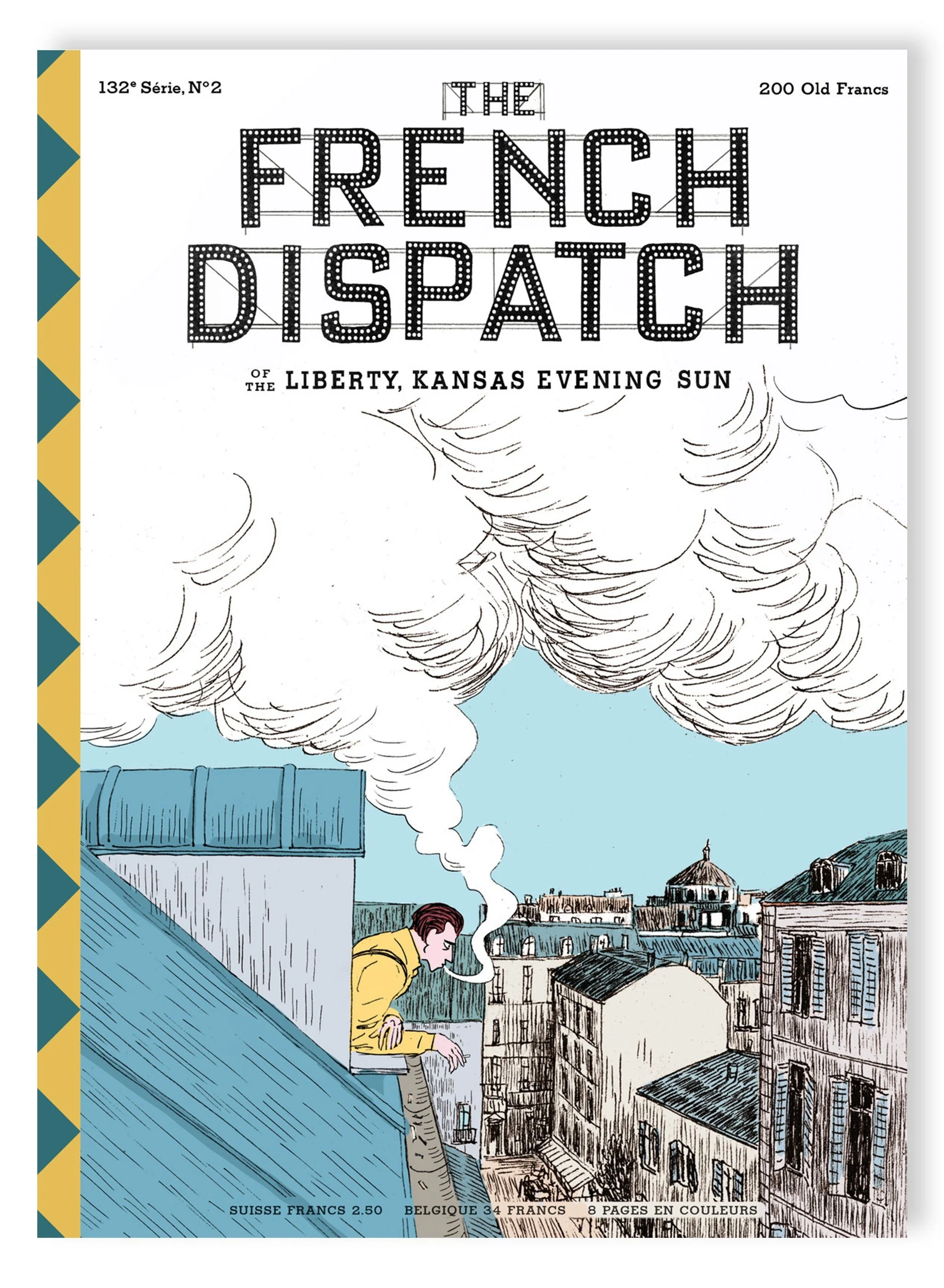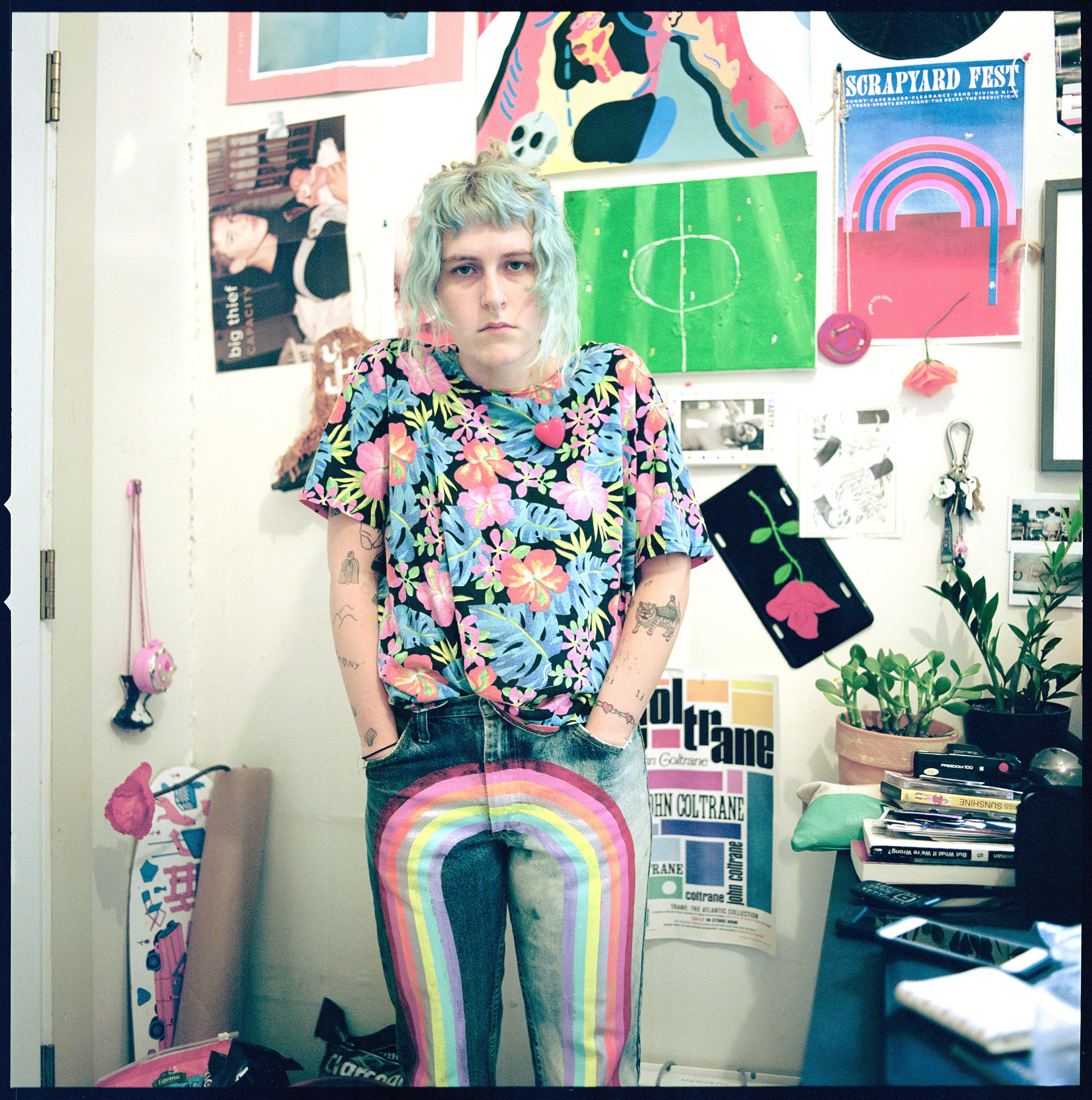Fear is Your Only God
Fear Is Your Only God
Been thinking so much about the elusive J-O-B these days… mostly because I don’t have one. The anxiety I’m feeling isn’t just an expression of financial instability — while obviously the most pressing of my concerns — it’s amplified by the recognition that these moments plotting the next move, the next chapter, have an oversized effect on everything which follows. I have so often taken work because it was available, because I needed it. I’d say, for most of us, this is always the case. But these jobs we take project themselves forward. They become what we colloquially understand as ‘experience.’ They determine what future work we are qualified to handle; secret gatekeepers that keep out the riffraff from the upper echelons of society. A period of joblessness becomes a key then, one that can open or close the door of opportunity for our future selves.
Putting together a spreadsheet of potential employment opportunities, I found myself flirting with procrastination; wikipedia-ing the prophet JOB as if this might somehow impart a key towards future success. The connection I did make, suprisingly, was quite eye opening. The story of Job goes as such: Job is a prosperous man, whose decorum and actions are praised by God. Scoffing, an angel “satan” (or accuser) contends that Job’s good fate is only due to God’s protection. God removes his implicit protection and allows for this angel to take everything Job holds dear (his family, wealth, and health save for his life). While despondent, Job remains faithful. Job’s friends consul him to deviate from the path of God as he had foresaken him, but remains steadfast. God eventually rewards this devotion, bestowing upon him even greater blessings than those which were taken. Finally, in Job 28:28, it is said outright:
"And unto man he said, Behold, the fear of the Lord, that is wisdom; and to depart from evil is understanding".
As with the mysteries of faith, our expectations are not based upon God, or any other deity, but fear, the deadly chimera of “what-if”. I’m reminded of the song “Vietnow” by Rage Against the Machine. “Fear is your only God” Zach de la Rocha intones. “Your savior’s my guillotine.”
I’m unsure what the scholarship is connecting Job the prophet to job the concept. Obviously there is an implicit recommendation to keep your head down, work hard. In many ways, it is the bait-and-switch of capitalism itself: if you work hard, anyone can make it, upward mobility is real. Keep the faith and God will reward you. Any quiet observer can identify the unspoken qualifications to this claim, the barriers which keep this dream real only for those whom it was really intended and inaccessible for those needed to support the top of the pyramid.
Indeed, the mechanism is quite simple: fear will keep them inline. Like the flock we are purported to be in Christianity, we must fear the wolves. There is no God, only the fear of God, the fear of stepping out of line and being punished for our insubordination. As idiotic as it appears pragmatically — I will go broke without income — it seems the revolutionary action is to act without fear, for fear is the yoke which binds us to our servitude. And here, it is important to distinguish not the evils of servitude, but to the poison of service towards fear. Any egalitarian society obviously must be founded upon service, but one that reports to one another as versions of self, of the existence we share rather than endure. If God is fear then the “satan” who implores our destruction is in fact our savior because through his coaxing we are offered the choice to cast off our fear and free ourselves from its yoke which thwarts our growth. If we are to truly have faith, then that faith must live in ourselves. Faith in fear will only cultivate oppression.
Do not misunderstand me. We do not want to venture down the path of “Arbeit macht frei”. We will not find salvation in work. Labour is necessary, yes, but it is not the vehicle of our deliverance. This is merely the adaptation of Job by capital. It circumvents God entirely, substituting fear and fear only. This is the core of a society of scarcity and is the enabling aspect which blinds us to the ludicrousness of accepting that many must suffer for the good of society. So, while we embrace work as necessary we must not idolize it. Instead — to keep with our biblical tone — we must retrain ourselves not to view service as sacrifice. If we are interconnected, interdependent (if we are one as many would propose*) then accepting less for the benefit of the whole is not taking less, but acknowledging that the ledger has not changed. Diversified, perhaps, but equal.
To work without fear means retraining our expectations away from what is dangerous towards what is advantageous. Forsaking materialism entirely is pragmatic suicide, but reframing materialism as the support of quality-of-life instead of the “wisdom of fear” must be the first step. The required courage is the same bravery of invention; that intrinsic manifestation which accompanies all great acts that materialize ideas from nothingness. So often we sacrifice becoming for being, despite the numerous evidence for so much of meaning sprouting from the font of the act, of the -ing. Best we not settle, a little audacity goes a long way.
* From the Shvetashvatara Upanishad, a 1st century BCE Hindu text:
God, who is one only, is hidden in all beings.
He is all-pervading, and is the inner self of all creatures.
He presides over all actions, and all beings reside in Him.
He is the witness, and He is the Pure Consciousness
Another Time, Since Dispatched
Wes Anderson’s Loving Eulogy to the Illustrated Magazine.
As a photo historian, I am quite familiar with the importance and legacy of the illustrated magazine be it the French Vu or German UHU, or even just the good old Life Magazine, these publications were responsible for building the modern psyche. Dispatches brought far away places into our living rooms, making our world marginally smaller. Wes Anderson’s film The French Dispatch, depicts not only the story of such a magazine, but the type of stories which would appear inside. The New Yorker even did a lovely piece on their writers and issues which inspired Anderson’s movie.
Whether your favorite was the New Yorker, LIFE, or something more chic like Vogue, it is obvious that their days are passed. The long form essay—made famous by thousands such as Truman Capote—was an experience I miss longingly, but whose length and frequency makes them utterly incompatible with the age of the internet and the smart phone. While I watched this film and savored the references and an attempt to rekindle that long lost feeling of wasting a morning away voraciously reading an exposé from The New York Times Magazine it is clear that while we may (and should) lament the passing of this art form from its zenith, the time has come to welcome and champion a new expression. One that can connect to our time as the illustrated essay once called upon us to dream of distant places and decadent lives.
Our culture is not like the one proceeded it and its values not yet forged. The amount of knowledge at our fingertips is so total, so absolute that it may only be communed with in small intense bursts. Long-form journalism cannot exist in this territory, particularly in the social media landscape that, like a child tugging on her mother’s hem, is always begging for our attention elsewhere. Thus far, this plain has only reaped the ‘hot-take’ and the meme, but as platforms such as Tik Tok and its ilk lure ever more users to the cool glow of their phones there is no reason to think a more mature form of expression is already building. So, while we may be anxious, only denial could convince us to believe change has not already set out to its task. Hearing, in the film, the poetic pronouncements of the young revolutionary Zeffirelli as the final addendum to his ‘Revisions of a Manifesto’, how sad I was to feel myself cringe at its idealistic fancy, its unironic optimism. Adorno long ago proclaimed the death of poetry in the shadow of the Holocaust and perhaps now poetry’s sincerity can no longer exist outside of the forced air of the bio-dome, heavy as our polluted air hangs.
While we have traded the smoke laden rooms where such devilish dealers concoct their geniuses, as Anderson depicts In his first act through the story of the homicidal artist Moses Rosenthaler, for the speculation of NFTs and crypto, I suspect we are still leagues from this epoch’s final form. This expression is still in its infancy and while some of its character has already been determined by the nature of this era, its gestation is still future, still impressionable. An attitude The French Dispatch reminds us is the control, however fleeting, we have in our crash course with the future and it is perhaps a challenge we must grasp more confidently.
Faced by the death of the old forms, our grief should not linger: their time is past. While there is much to be celebrated and much to be learned from the art of our predecessors, there is nothing to be resuscitated. Now is a time for exploration and for the boldness and conviction it requires. The past, however deadly, must always remain there; lest it haunt all our future movements with the spectre of hesitation. Our energies must be rooted in the present where they live and thrive, or better yet, in the future where they grow and divide. Our time is present — as it has been for time immemorial — and thus does not ask what the future should be, only how it will be. There is opportunity like never before to embrace an art that communicates through the web of wire which connect us like mycelial networks and expresses the values and human dreams which seem everlasting, that the reactionaries always find precarious. There is no need to guess what it will be, only the will to keep creating. Some will call it magic, but we will know its truth for we invneted it.








